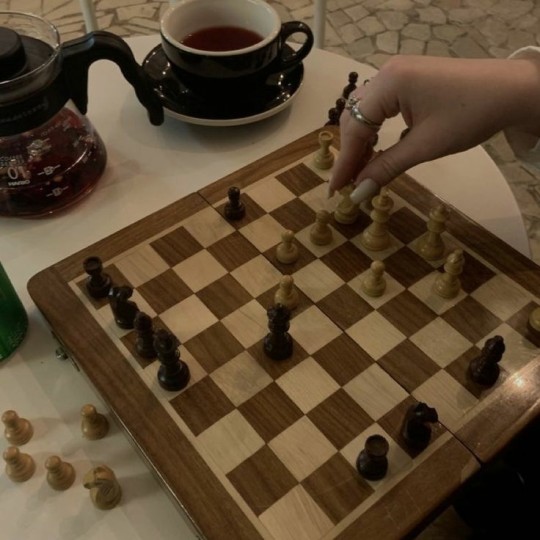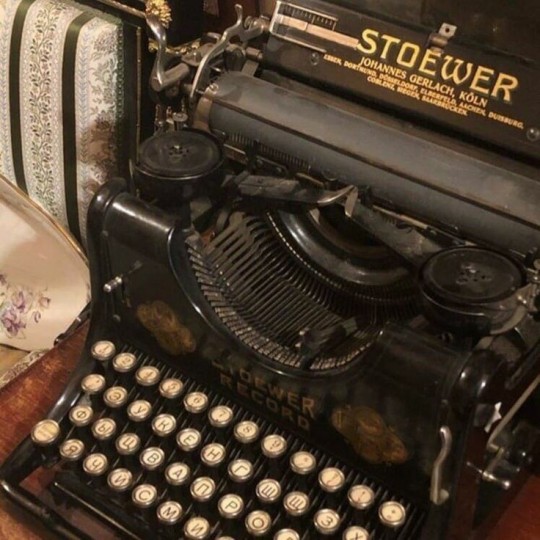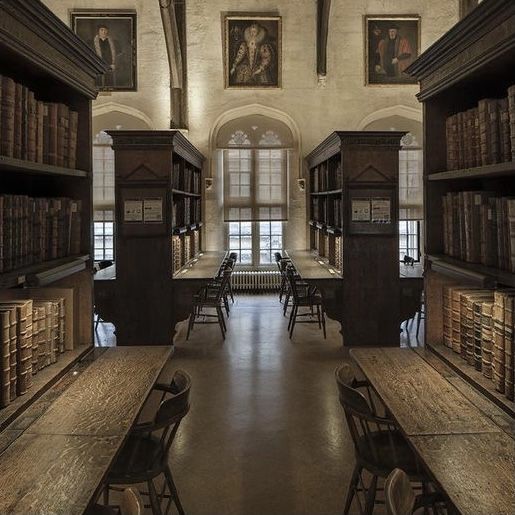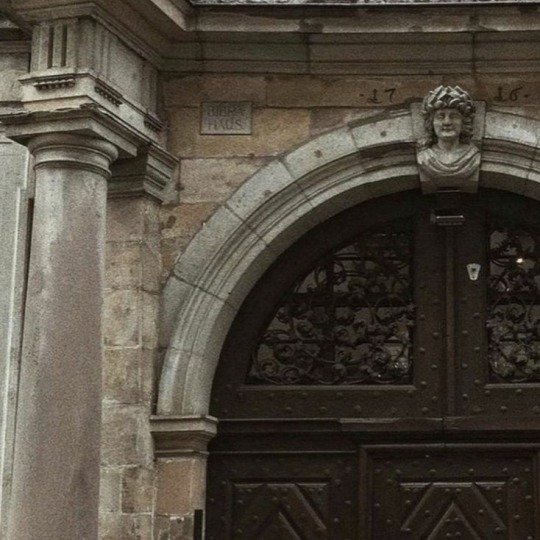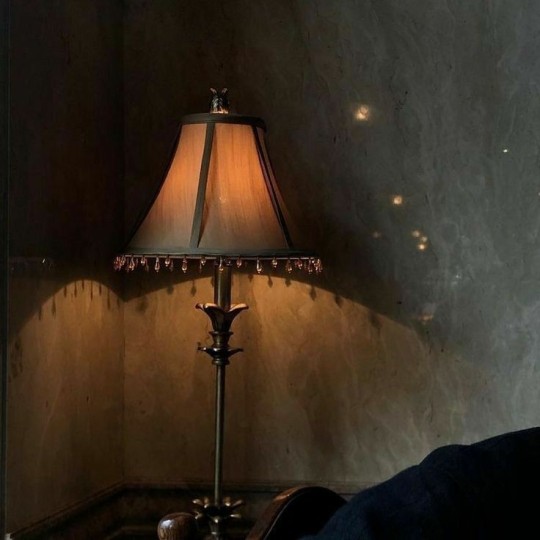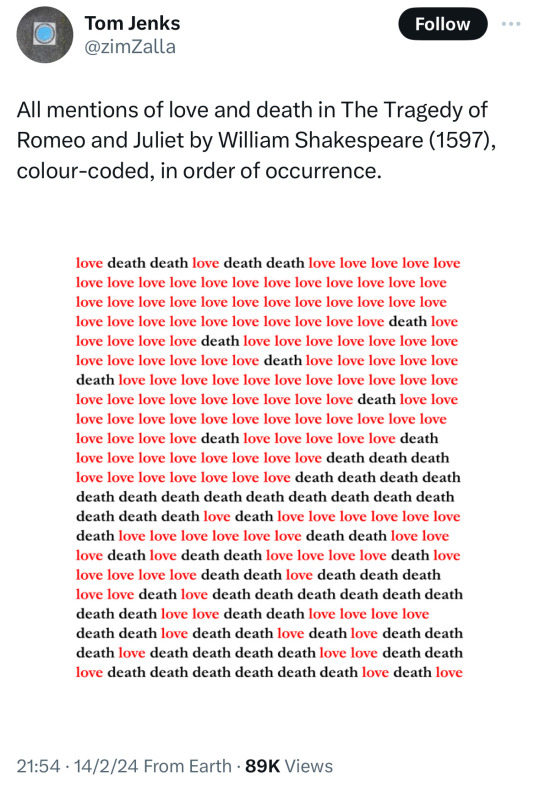Text




Reminder: learning isn’t supposed to make you feel bad. Sometimes the """right""" way doesn’t work and it’s alright. There is beauty to be found in chaos.
.
2K notes
·
View notes
Text
IM SOAKED HUGH!!!

139 notes
·
View notes
Text

"You said trust me" "And you did."
1941 Crowley burning the evidence.
What he is listening to: (We'll meet again by Vera Lynn)
https://youtu.be/8Nzy1cfnKh4?si=xPz_ePenfulKu1zp
-
Available as a print:
https://www.inprnt.com/gallery/beanart
More of my art:
https://www.instagram.com/beatenossart
My coffee community and tip jar:
https://ko-fi.com/beanart
5K notes
·
View notes
Text
kind of jealous of swifties. wish i could be satisfied with so little
20K notes
·
View notes
Text
cannibalism as a metaphor for love but also as a metaphor for metamorphosis and sex and hunger that does not stop at the stomach.
531 notes
·
View notes
Text
IF WE WERE VILLAINS
Estuve leyendo todos somos villanos, y pensé que sería una increíble obra, pero solo me encontré con un libro mediocre que aspira ser the secret history, y con personajes desagradables que no caen bien. Richard era desagradable, pero al menos caía bien. No terminé conectando con ninguno.
#if we were villains#todos somos villanos#shakespeare#dark academia#the secret history#richard papen#henry winter
4 notes
·
View notes
Text
"Love is about finding a piece of someone's soul and devouring it until nothing remains but an unquenchable thirst." - Hannibal Lecter
Love is a kind of cannibalism. The more we eat, the less there is, until we all become consumed by it." - Michael Paterniti, "The Telling Room: A Tale of Love, Betrayal, Revenge, and the World's Greatest Piece of Cheese"
Even though the critics and audience were captivated by the show, NBC’s Hannibal got cancelled in 2015 after only three seasons. Hannibal is remembered by the public for many reasons - beautiful cinematography, talented cast and interesting plot throughout its whole run. Some more memorable than others, but nothing can compare in popularity with the intriguing relationship between Hannibal Lector and Will Graham.
Both characters were created by Thomas Harris and introduced to the public in the novel Red Dragon, which came out in 1981. After the first appearance, they were brought back many times in the media such as adaptations of novel Manhunter (1986) and Red Dragon (2002) as well as television series that aired from 2013 to 2015.
So what was so interesting about main character dynamics, that even after 8 years from last season, it sparks conversation and insipes new media? Let’s find out.
Imagine you live in a small town where the social classes are clearly shown and the aristocracy is always in a public view. In these settings, it would be hard for anyone to miss Hannibal Lector and his luxurious feasts. Aristocracy requires specific,prestigious characteristics and Hannibal had all of them - brilliant and cultured forensic psychiatrist, with profound intellect, taste for fine things in life and “supernatural” ability to understand people’s emotions and motivations.
Where someone might believe that Hanibalas life is organised to the colour of cufflinks he wears for a daily cup of tea, it would be madness to say the same applies to Will Graham. A former FBI profiler, who left the field after breakdown, who moved to a rural area, away from the gruesome world of serial killers(and people) he once confronted. Human behaviour profiler that prefers dog company to human interaction. Even after all the attempts, he is drawn back to the criminal profiling switching field work to the teaching classes.
Hannibal and Will at the first glance, have personalities that would never collide and these differences are the driving force in their complex and often tumultuous relationship.
Will possesses an extraordinary empathy, which makes him dangerously sensitive to the suffering of others, in particular the victims of crimes he investigates. As a result or byproduct of it, Will tends to be introverted and reserved, preferring solitude and quiet introspection. Due to his mental condition, he is somewhat awkward and often uncomfortable in social situations (it was hinted by directors and actor Hugh Dancy, that Will is on autistic spectrum). It wouldn’t be a surprise to say that Wills’ moral compass drives him and makes him come back to the field every time. After a traumatic and unstable childhood, he desires to protect an innocent and bring justice to those who committed horrific acts.
Hannibal is highly intellectual, he is a brilliant and cultured individual, who radiates charm and charisma. When dealing with the issue and deciding on action, he approaches it with a cold mind and never allows his emotions to take over. Surprisingly for the audience and Baltimore civilians, his cultured exterior is a facade for cold and philosophic nature. The manners and tactics were in his upbringing and Hannibal learned how to use it for his goals. Hannibal’s charm and psychological acumen helps to excel at manipulation, which leads others to dangerous paths. Often his true nature is disguised in a veneer of social respectability.
As mentioned before, Will’s empathy and moral compass are both strength and burden. Hannibal as a deeply messed up person, sees him as a kindred spirit that might truly understand him. This desire creates a bond between them, and makes Will susceptible to manipulations.
On the other hand Hannibal’s intelligence and charm draws Will, as he was fascinated by the physiatrist and was enjoying the company. However, throughout the series, Will begins to suspect Hannibal’s true nature, their relationship becomes increasingly antagonistic. Due to the complicated nature of both characters and their desire to be truly seen and understable, they mirror each other. Their similarities both repel and attract them to each other, leading to a cop moles and ever evolving relationship marked by tension, trust, betrayal, and a blurred moral line.
Will left FBI field work as his mental health declined. He feels conflicted about leaving the work, however, he is reluctantly drawn back into the world of criminal profiling by his former boss, Jack Crawford.
Hannibal Lector, is introduced as a respected psychiatrist and forensic expert. Jack Crawford seeks his assistance in evaluating and profiling a new serial killer on the loose. First meeting of Hannibal and Will, uncurled when Will is brought to the FBI Behavioral Science Unit to consult on the case.
The initial encounter between Will and Hannibal is marked by a collision of their personalities. The scene unravels when Will enters a dimly lit room with a large conference table. Where Jack introduces him to Dr. Hannibal, a respected psychiatrist and forensics expert. The contrasts within the characters are immediately evident, in their clothes, stance and body language. The discussion about the ongoing case, exposes Will’s empathetic and unconventional approach to profiling immediately stands out, as he re-enacts the crime scene and shares his insight and Hannibal while intrigued by Will’s unique perspective. Maintains his calm and measured demeanour.
The meeting left both characters with mutual fascination - Will is intrigued by Hannibal ‘s intelligence and knowledge, while Hannibal is interested in Will's unusual ability to get inside of serial killer minds. The scene serves as foreshadowing for the complex relationship that would develop between the two characters. It hints at the power dynamic/ imbalance, with Hannibal appearing as a mentor and guide for Will, while also providing leverage for the psychological manipulation and tension that will define their relationship as the series progresses.
“Oh, yes, that thing you do. You're quite the topic of conversation in, uh, psychiatric circles, Mr. Graham.” - Frederick Chilton
As someone who moved a lot in childhood and who keeps distance from people due to his increased emotional intelligence, Will is vulnerable to manipulation through personal relationships. Hannibal inserted himself as a mentor and a friend to Will, offering him a quiet and peaceful place for the forever racing/analysing mind. He became a beacon in Will's world, to whom Will could drift to to find solace and understanding without exploiting.
Position of a friend, a trusted person, someone Will looks towards for guidance, gave Hannibal the ability to undermine Will’s perception of reality and sow doubt in his own experiences. Hannibal’s presentation of contradicting evidence and denial of responsibility, makes Will question the accuracy of his memory and judgement. Doctor Lecter, manipulates witnesses, projects his motives onto Will and exploits Will's mental health vulnerability. By isolating Will and making dependent on himself, Hannibal, created an atmosphere of physiological tension, moral ambiguity and a disturbing power dynamic in their relationships.
A perfect and some would argue the most significant part of the emotional manipulation and codependency is Abigail Hobbs. Abigail is the daughter of a serial killer who was killed by Will. Introduced to the audience in the Aperitif episode, she takes an interesting place in the story, a victim of her fathers actions at first glance, but actually helping him to find new victims. During arrest, her father tried to commit murder- suicide slashing Abigails throat and later was shot by Will. With Hannibal's help, she survived and lived.
“You saved Abigail Hobbs's life, but you also orphaned her. That comes with certain emotional obligations, regardless of empathy disorders." - Hannibal Lecter
For unexplained reasons, Abigail views Will and Hannibal as surrogate paternal figures. Throughout the first season, she develops a relationship with both of them, they play a role of family - something they all were denied before. Will grows attached to Abigail, seeing her as his responsibility and daughter.
“We are her fathers now” - Hannibal to Will about Abigail
Lafter Abigail discovers what role Hannibal played in her dad's arrests, she disappears: her blood is lately found on the kitchen floor, suggesting Hannibal in fact murdered her. Later he shares a meal with a friend and frames Will for her murders by feeding him her ear. This ruins Will sending him in denial that he would hurt someone he cared so deeply for.
In season 2 finale Mizumono, it is revealed that Abigail is alive - missing an ear. Hannibal implies that he had intended for Abigail to come with them, when he and Will ran away , until he discovered Will’s betrayal. A result and punishment for Will, after stabbing Will, Hannibal slices Abigail's neck in front of him and leaves her to bleed out. After Hannibal escapes the police, dying will desperately tries to save Abigail before losing to his own wounds.
“ I let you know me. See me. I gave you a rare gift. But you didn't want it."
"Didn't I?"
"You would deny me my life."
"N-no. Not your life."
"My freedom then! You would take that from me! You would confine me to a prison cell. Do you believe you could change me, the way I've changed you?"
"I already did."
"Fate and circumstance have returned us to this moment. When the teacup shatters, I forgive you Will. Will you forgive me?"
"N-no. Don't. No. No, no, no, no."
"Abigail. Come to me."
A cat- and- mouse game is a central and enthralling aspect of the narrative. Both characters take roles of predator and prey at different times.
It does start with an infinite circle - an empathetic profiler, who in his job often plays the role of hunter, pursuing and understanding killers yet in the eyes of Hannibal he is prey. In contrast Hannibal is a cunning serial killer who is a hunter in his nature but conceals his true colours and at times appears as a prey being pursued by law enforcement.
Throughout the series, their roles are getting constantly reversed. The game blurs the lines of mortality. Will is sometimes forced to cross ethical boundaries to catch Hannibal, while Hannibal pushes Will to confront and accept his darkest. To mould him, to his design.
Surpassingly for the action that would drive people apart, in the show, the game deepens the connection between Will and Hannibal. Their relationship becomes increasingly complex and intertwined, with moments of mutual fascination and repulsion.
Through the season,roles are concentrated getting reversed shifting the power dynamics. This could be seen clearly twice in every season.
In the first season we see Will as a hunter, assisting the FBI in profiling and capturing serial killers. Hannibal Lecter is presented in a role of protector and confidant for Will, guiding him through his mental struggles. Through subtle manipulation, he positions himself as a mentor and friend.
Second season meets with Hannibal orchestrierung events that lead to Will being framed for multiple murder. Will, previously presumed to be a hunter, becomes hunted, navigating a complex web of deception and betrayal. In surpassing event flow, Will begins to manipulate Hannibal. He pretends to support and align with Hannibal’s dark morals while planning to expose him. This creates a crease in their relationships.
After Hannibal flees to Italy, in the third season, the table turns as Hannibal becomes the captive. Will, with other characters, play the role of hunters, seeking justice for Hannibal’s crimes, some more personal than others. Previously confident and all-powerful Hannibal, now vulnerable and confined. At the season and series finale, the relationship between Will and Hannibal undergoes another shift as they work together on the plan. However, the ultimate confirmation of them as a pair, involves unique role reversal, challenging and wiping traditional notions of who is hunter and who is hunted in this relationship. As both characters have strong beliefs, keenness to compromise and desire to survive, they adapt their roles for the best outcome, first for personal gain, later for them as whole.
Hannibal is a complex show, with dark themes and corrupted characters, so when someone expresses sympathy or admiration to the main characters it raises questions, how morally correct it is.
Shows in itself, is multi dimensional, delving in the characters background, motivation and vulnerability. This encourages the audience to empathise with the characters who commit morally reprehensible acts.
The main character that audiences usually sympathise with is Will Graham, with his internal struggle, burden of the empathy and moral dilemmas he faces, create a character that is so easy to sympathise with. In the eyes of the audience he is a broken one, who needs help and understanding, even after committing crimes later in the season.
Hannibal not so often, receives empathy even though a lot of fans are drawn to this complex character. His charisma, intelligence and motivation fascinate the audience, who close their eyes on his serial killer nature. His background, upbringing and care for people close to him, make him a conflicting character in the eyes of the audience , who constantly question “is it awful, to feel sympathy for him and his action even though he is a serial killer?”.
The constant blurring of moral lines challenges audiences to reassess their own ethical judgments and confront the complexity of human nature. The moral complexities faced by characters, particularly Will Graham, encourage viewers to reevaluate their understanding of right and wrong within the context of the narrative.The show was praised multiple times for the cinematography and attention to the details, which keep the audience on their heels even now. Smallest of details were put in the show for the purpose. It would be hard to explain and note all the symbolism in the show, but two recurring, seem to be more important than others.
First one we see on the screen is a teacup, symbolising in the show, impermanence and fragility of relationships with sanity. Often, later in the series, the recurring motif of the teacup, often shattered and broken. This portrays a statues within characters, particularly in the confusing relationships between Hannibal and Will. The act of mending the broken teacup becomes a powerful symbol of resilience and the potential for healing. It reflects the idea that, despite the damage inflicted, there is a possibility for repair and renewal in relationships. This symbolism is particularly evident in Hannibal's meticulous efforts to mend the teacup in the presence of Will, signifying a desire for continuity despite the fractures.
Okay, here is a fact - in Algonquin folklore there is a certain mythical creature. Out of respect to the people of the community, who repeatedly asked to not speak the name out loud or write it, I will avoid its full name. I hope that my description will give enough information to search it up independently or will give a hint as to who this creature is.
This creature is a manifestation of Hannibal Lector’s cannibalistic instincts. It serves as a symbolic representation of the predatory nature within Hannibal, empathising his primal and predatory urges, while also symbolising transformation and metamorphosis. It reflects the character's evolution throughout the series, particularly Will Graham’s journey as he grapples within his own darkness. It becomes a visual representation of the character’s internal struggles and the potential for transformation in the face of adversity. It shows that in the moment of emotional distress with progressive encephalitis the creature's physical form (deer) will show itself to the Will and Hannibal would sometimes wear its face. The creature is not just a physical entity but also a psychological manifestation. It appears in dream sequences and visions, representing the psychological impact of Hannibal's influence on those around him. It becomes a symbolic link between the characters' subconscious and their conscious actions.
The incorporation of these symbols adds layers of depth and meaning to "Hannibal," elevating it beyond usual crime drama. The teacup and creature symbolism not only provide visual and thematic colours throughout the series but also allows viewers to explore the nuanced nature of the characters' psyches, relationships, and the balance between light and darkness. These symbols contribute to the show's artistry and philosophical undertones, creating a unique and immersive viewing experience.
*creature that cannot be named
Hannibal has had a notable cultural impact, leaving a lasting impression on the audience and contributing to discussion around television, storytelling and the portrayal of complex characters. The series has been recognized for pushing the boundaries of the horror genre on television. It defied conventional expectation by delivering a psychological and cerebral form of horror, focusing on the darkness within the human head and physiology rather than relying only on the jump scares and bloody scenes.
The dedicated fan base that was collected around Hannibal and vibrant online communities spawned have influenced how other shows engage with their audiences. The series’ impact on the fan theories, discussions, and fan generated content has demonstrated the potential for sustained audience engagement by the broadcast of episodes. Even though the series are violent and relationships portrayed here aren’t the definition of healthy, the fan base surrounding it is one of the non toxic ones. There are rarely controversial discussions or fights within fans. The show was also groundbreaking in terms of its representation, it was complicated and hard to show LGBT relationships on the screen. Hannibal had two couples that were in queer relationships. One of them is Hannibal and Will, even though they never explicitly stated so and the second is Margo and Alana who shared an on screen kiss and after the show was cancelled producers shared that they are wives.
Hannibal has left a significant improvement on various aspects of media, inspiring creators to take creative risks, explore psychologically depth and challenge the norms. Its influence extends beyond the original broadcasts and run time.
In conclusion, the relationship between Hannibal Lecter and Will Graham in the TV series Hannibal is a nuanced and intricate exploration of darkness, empathy and blurred lines between predator and prey. Their dynamic, marked by role reversal, manipulation and codependent connection , challenges traditional portrayals of protagonist and antagonist. Hannibal, beautifully inserted symbolism, such as the teacup and the creature, in top fabric of their relationship which added layers of depth in their narrative.
Their relationship challenges viewers to confront their own moral compass, as characters consistently blur the thin line between good and evil. The show's cultural impact is seen nowadays, in its influence on storytelling, character development and acceptance of physiological horror. As "Hannibal" continues to be a subject of analysis and discussion, the enduring legacy of Hannibal and Will's complex relationship stands as a testament to the power of storytelling to provoke thought, challenge conventions, and resonate with audiences on a profound level. The series invites us to delve into the darkest recesses of the human psyche and ponder the intricacies of connection and morality in a way that is both unsettling and captivating.
(This started as school project. I hope people of Tumblr will enjoy it, as my classmates didn’t)
26 notes
·
View notes
Note
Happy birthday to me
Hello, Mr. Gaiman. I wanted to start reading Smoke and Mirrors and it caught my attention that in the brief description it said it contained "eroticism." Exactly how much? Frankly, I've never thought of your material as explicit, I've always felt very comfortable with it. So it catches my attention.
ps: have you seen the trailer for The Crow?
ps²: When will I hear from my Anansi Boys?
xoxo
There's one short story with a lot of sex in it. But I don't think it's very erotic.
446 notes
·
View notes
Text
Omorashi!!!
Do you know Omorashi? The excitement of holding urine? Do you know if there is something similar but with defecation? I mean, holding back the urge to poop when it's extremely close, like diarrhea. (but, not coprophilia or coprophagia)
0 notes
Text
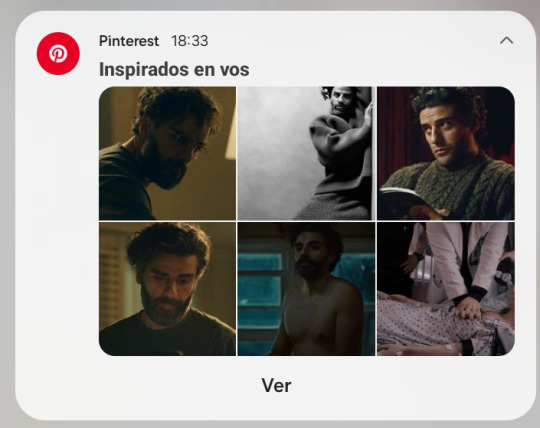
SEX. SEX. SEX.
SEX. SEX. CPR.
totally me after seeing those pics
#oscar isaac#oscar isaac hernandez estrada#moon knight#caballero luna#marc spector#steven grant#jake lockley#moon Knight post#jonathan levy#scenes from a marriage#jessica chastain#star wars#poe dameron#dilf#daddy#older men do it better#older daddy#ethnically ambiguous#Pinterest
0 notes
Text
me when gay series

(ID: A painting so gay that only a faggot French academic could afford to paint it without raising suspicions. /end ID))
Título original: Dante et Virgile
Museo: Museo d’Orsay, París (Francia)
Técnica: Óleo (281 cm × 225 cm.)
#dante#virigilio#adolphe bouguereau#william adolphe bouguereau#hannibal#will graham#gay series#queer series#good omens#brian fuller#neil gaiman#david tennant#guillermo de la cruz#nandor the relentless#wwdits#ofmd#rhys darby#phoebe waller bridge#killing eve#sandra oh#jodie comer#jodie foster#terry pratchett#faggot
1 note
·
View note
Text
canal de difusión de su fan caníbal menos favorito xoxo feed me or eat me idc.
0 notes
Text
when the things I like don’t have good fanmade merch I get violent

40 notes
·
View notes
Text
I commented on a TIKTOK and my phone rings with an abysmal amount of responses. That I don't read/care. In reality, it is the best battle against hate, to ignore it. Like when Neil Gaiman responded to me. Wow! That day I did receive hate.
Or maybe I just love the sound of my voice.
2 notes
·
View notes

